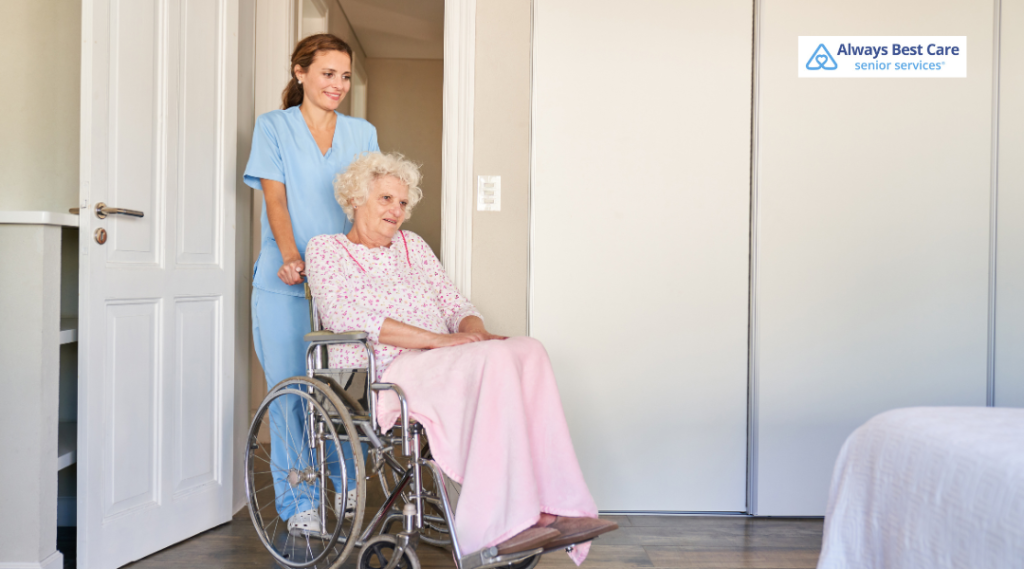Key Services Included in Hospital-to-Home Care for Seniors

SEO Meta-Description
Learn how hospital-to-home care supports seniors with medication management, mobility help, meal prep, therapy coordination, and close recovery monitoring.
Heading back home after a hospital stay feels like crossing the finish line—but the real recovery race is just beginning. The transition from hospital to home can be tricky, especially for seniors juggling new prescriptions, mobility challenges, or lingering fatigue. With thoughtful planning and the right mix of services, home becomes a safe, healing space instead of a source of stress.
Table of Contents
Why a Careful Hospital-to-Home Plan Matters
Discharge day may bring excitement, but it can also open the door to hidden risks—missed meds, falls, or infections. A detailed hospital-to-home plan acts like a safety net, giving seniors a clear path forward while easing the burden on family caregivers.

Core Services That Smooth the Hospital-to-Home Journey
Medication Management Made Simple
New prescriptions and dosing changes can feel like a puzzle. Skilled nurses or trained caregivers can:
- Organize pill boxes and set reminders so every dose is taken on time.
- Track side effects and report concerns quickly to doctors.
- Adjust schedules for meals or sleep when medications overlap or conflict.
Mobility Support and Safety
Recovering muscles and balance issues make every step count. Professional caregivers help with:
- Gentle assistance for walking or wheelchair use to keep movement safe and steady.
- Proper transfer techniques for beds, chairs, and bathrooms to reduce strain.
- Fall-prevention strategies such as clutter-free hallways and well-placed grab bars.

Nutritious Meal Preparation
Healing bodies need fuel, and care teams can plan and cook balanced meals that:
- Support wound healing and immune health with nutrient-rich ingredients.
- Match dietary restrictions like low-sodium or diabetic-friendly menus.
- Encourage hydration and regular eating to maintain strength and energy.

Therapy Coordination Right at Home
Recovery often calls for physical, occupational, or speech therapy. Hospital-to-home care simplifies this by:
- Scheduling therapist visits so sessions fit into daily routines.
- Following prescribed exercises to boost mobility and independence.
- Keeping doctors updated on progress and setbacks for timely care changes.
Ongoing Recovery Monitoring
Eyes on vital signs and subtle changes make all the difference. Skilled caregivers can:
- Check blood pressure, temperature, and oxygen levels to catch concerns early.
- Spot warning signs of infection or other complications.
- Relay updates to physicians for fast adjustments in care.
Extra Touches for Total Well-Being
Emotional Encouragement
Friendly chats, shared meals, or even quick outdoor strolls can lift spirits, helping seniors heal both physically and mentally.
Family Communication
Regular updates keep loved ones in the loop, easing worries and making everyone feel like part of the team.
Top Benefits of a Well-Planned Hospital-to-Home Program
A smart hospital-to-home plan is like having a backstage crew making sure the whole recovery show goes off without a hitch. It’s not just about leaving the hospital—it’s about setting up every scene at home so healing feels easier and a lot less stressful. Here’s how it shines:
- Lower readmission risk – No one wants an unexpected encore at the hospital. Daily check-ins on blood pressure, wounds, or meds catch little hiccups before they become big problems. Quick action keeps seniors safe, and families can skip those middle-of-the-night emergency trips.
- Personalized recovery plans – Think of this as a tailor-made playbook. From meal choices to therapy exercises, everything is designed to match a senior’s habits, favorite foods, and doctor’s orders. It’s flexible, practical, and way easier to stick with than a one-size-fits-all plan.
- Peace of mind for families – Instead of worrying about every detail, loved ones can focus on the fun stuff—like sharing stories, planning outings, or just enjoying coffee together. Regular updates from caregivers mean no guessing games, just steady confidence that help is ready when needed.
With these perks rolled together, a hospital-to-home program feels less like formal healthcare and more like a friendly safety net—keeping recovery on track while letting everyone breathe easier and enjoy the homecoming.
FAQs About Hospital-to-Home Care
Q: How soon should hospital-to-home care begin?
A: Ideally, services start the same day a senior returns home to avoid gaps in care.
Q: Does the program include therapy sessions?
A: Yes, physical, occupational, or speech therapists can visit at home to speed recovery.
Q: Can family members still play a role?
A: Absolutely. Loved ones often help with meals, conversation, and emotional support, making recovery feel more connected.
Q: Is hospital-to-home only for seniors?
A: No. Anyone recovering from surgery or illness can benefit from tailored home care.
The move from hospital to home is more than a change of address—it’s a fresh chapter in healing. From medication management and meal prep to therapy coordination and vigilant health checks, every service works together to keep seniors safe, nourished, and encouraged. With a solid plan and caring professionals, recovery at home becomes smoother, brighter, and far less stressful for everyone involved.

Bring Healing Home with Confidence
Ready to make recovery easier and brighter? Explore the comfort and security of hospital-to-home care today. From medication management to therapy coordination and cheerful companionship, our team helps seniors heal safely—right where they feel most at ease. Start the journey toward a smooth homecoming by reaching out for your personalized care plan now.
Contact Always Best Care of Fort Worth at (817) 380-9208 to learn more and schedule your free consultation.





